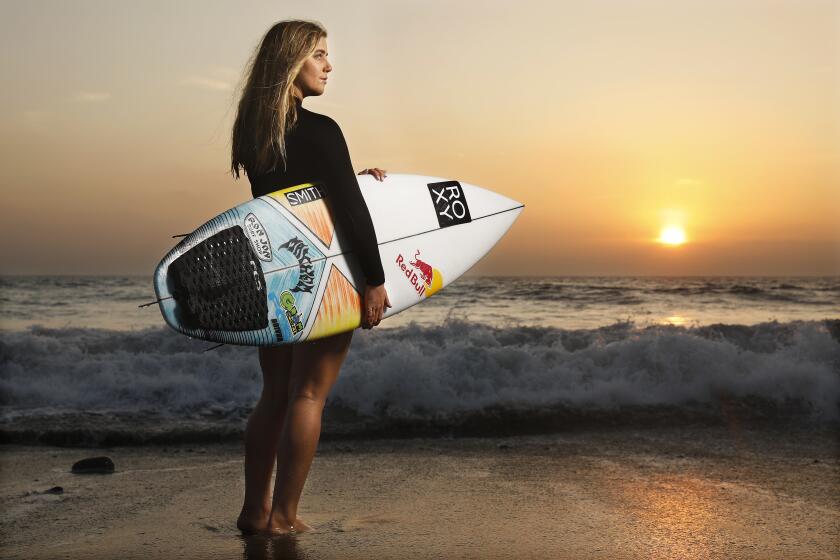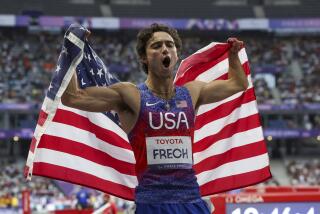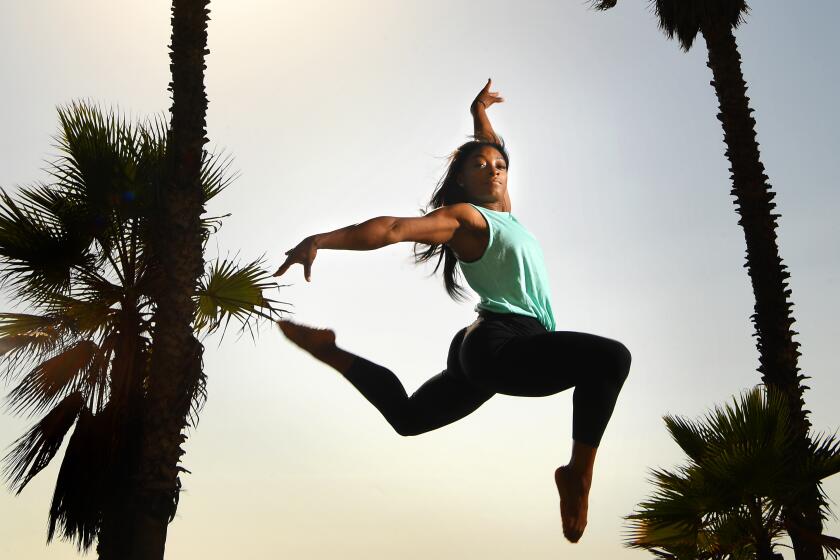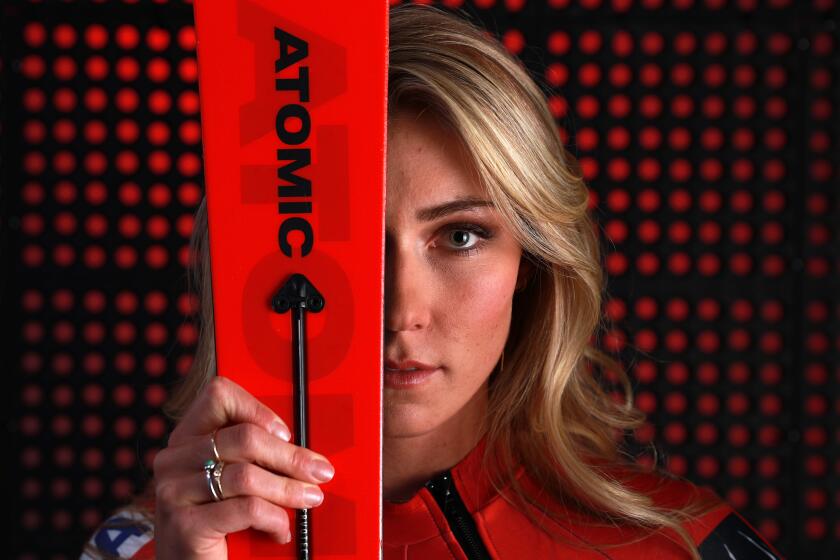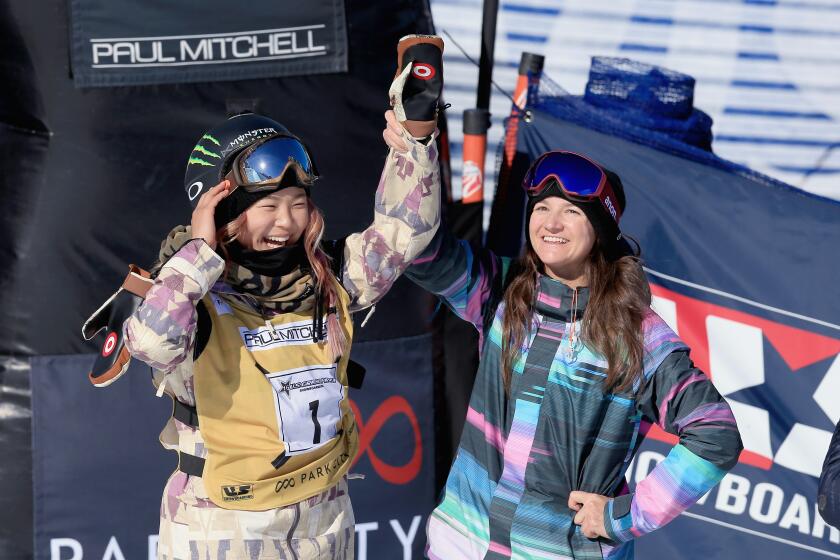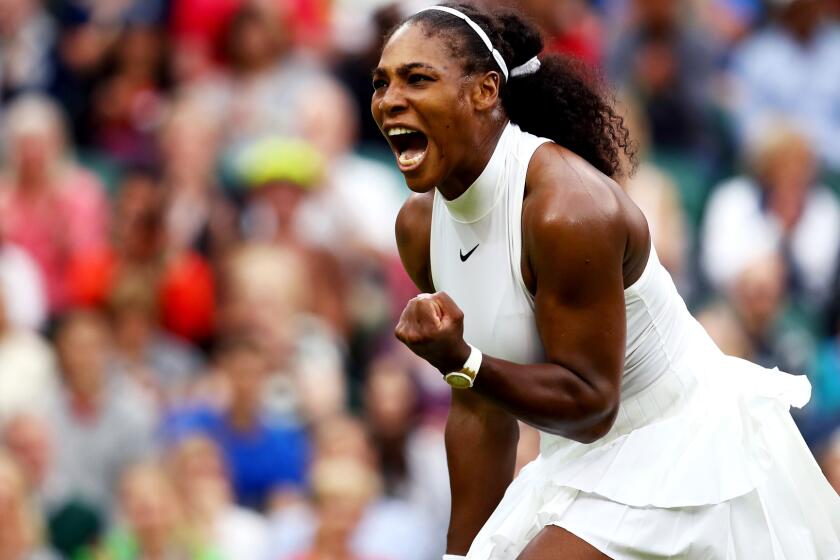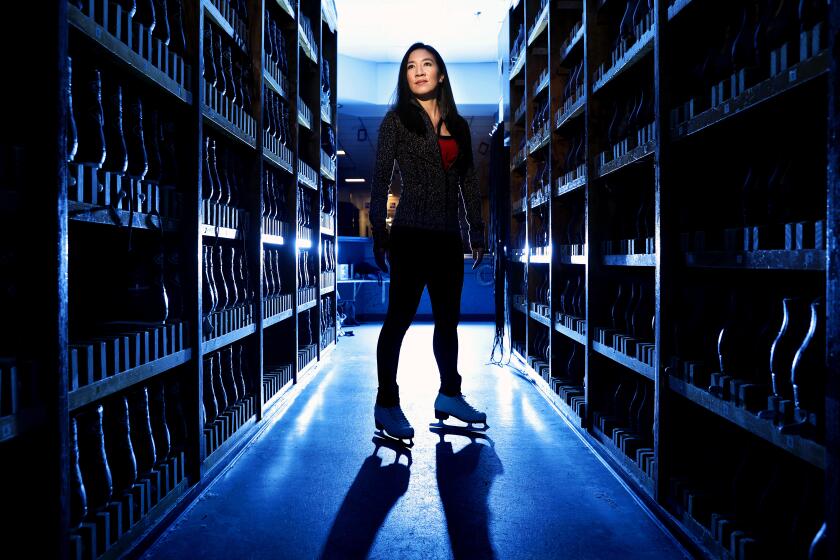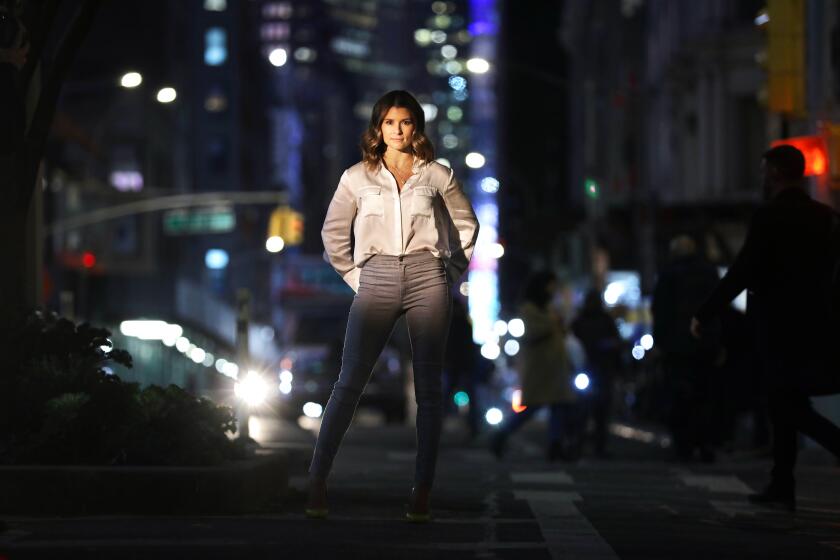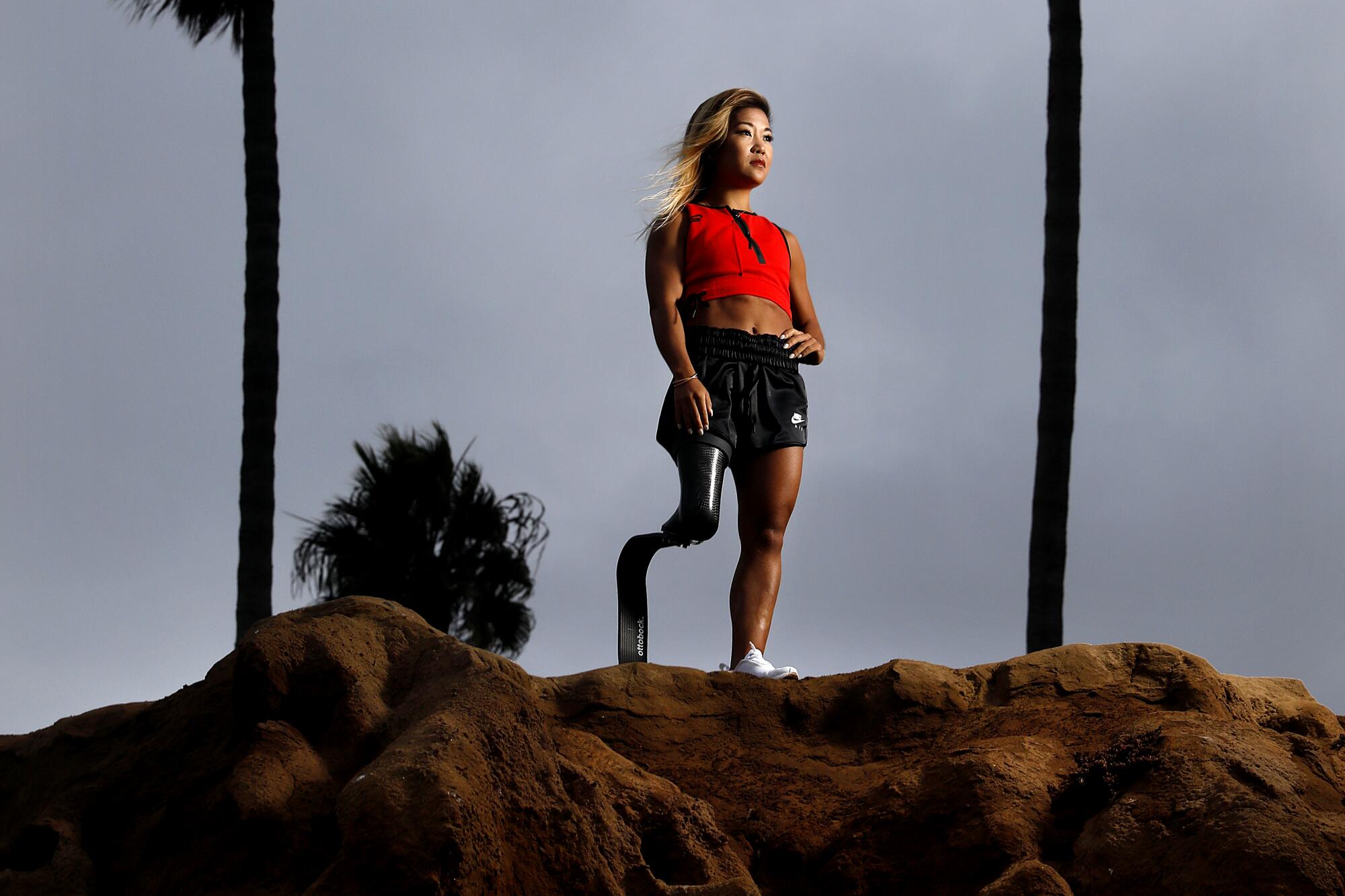
- Share via
Scout Bassett is a natural fighter. As an infant in China, she lost her right leg after being severely burned in a chemical fire. Bassett lived in an orphanage for years until she was adopted by an American family. She was not quite 8 and found herself living in a very small, very white town in Michigan.
Bassett says she always felt like an outsider until, at 14, she was put on a track to run for the first time. It changed the trajectory of her life.
“When I found running,” she says, “it felt like all the thousands of chains that tied me down, all the no’s I’d been told in my life were lifted.”
Amputee’s resilience could culminate in world record, Paralympic berth
Running allowed Bassett to feel empowered, including school. She attended UCLA, majoring in sociology and anthropology.
Bassett competed in paratriathlons and then switched to track and field events. She persevered all the way to the 2016 Paralympics, where she represented the United States in the 100 meters. In 2017, she medaled at the same distance and in the long jump at the World Para Athletics Championships, and in 2019 she won the women’s long jump at the Parapan American Games.
Bassett, 31, works with the Challenged Athletes Foundation, the organization that put her on the track, to fight for equality in sports, an issue that is heightened in the disabled community. She is hopeful that the 2020 Paralympics will include more events for women.
Caroline Marks is riding the wave of success early.
In 2019, Bassett appeared in ESPN’s the Body Issue magazine to showcase a standard of beauty outside of the norm and to call attention to sports inequality in Paralympic track and field. Disabled women, she says, have had an uphill battle to be viewed as beautiful. Disabled men, she adds, are often glorified as “bionic.”
Bassett wants to encourage girls and women who might be hesitant to get into sports because of their seemingly masculine nature or their concern about competing with prosthetics.
“You need sport in your life,” she says. “How it looks shouldn’t matter. What matters is how you feel.”
More to Read
Go beyond the scoreboard
Get the latest on L.A.'s teams in the daily Sports Report newsletter.
You may occasionally receive promotional content from the Los Angeles Times.
